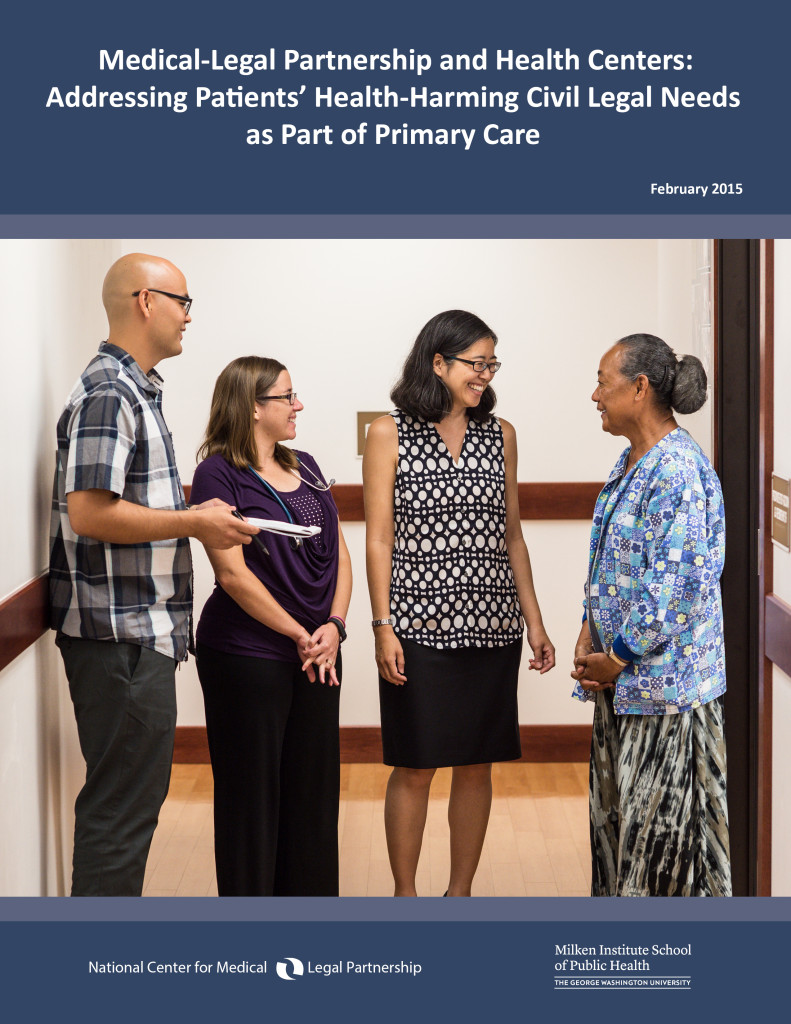A new issue brief from the National Center for Medical-Legal Partnership shares how medical-legal partnerships operate at health centers and how integrated legal care can help health centers meet their mission.
 Medical-Legal Partnership and Health Centers: Addressing Patients’ Health-Harming Civil Legal Needs as Part of Primary Care
Medical-Legal Partnership and Health Centers: Addressing Patients’ Health-Harming Civil Legal Needs as Part of Primary Care
By Marsha Regenstein, PhD, Joel Teitelbaum, JD, LLM, Jessica Sharac, MSc, MPH, and Ei Phyu
Click here to download the free issue brief.
The majority of patients seen at health centers are living at or below the poverty level, and because of this, they have unmet legal needs — related to housing, public benefits, education — that negatively impact their health. Medical-legal partnership is an approach to health that integrates the expertise of health care, public health and legal professionals and staff to address and prevent these health-harming civil legal needs for patients, clinics and populations. There are currently 60 FQHCs and Look-A-Like health centers that operate medical-legal partnerships with civil legal aid agencies across the United States. In the fall of 2014, HRSA released guidance, which clarified that civil legal aid services may be included in the range of enabling services that health centers may choose to provide to meet the primary care needs of their patients.
This issue brief explores the medical-legal partnership approach to health in the context of health centers. It is intended to help health centers understand the benefits – to patients and to their institutions – of partnerships with civil legal aid agencies, and to introduce additional resources that can help health centers implement these programs.
